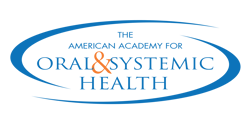Optimal Cardiovascular Prevention - The Oral/Systemic Connection
Presented By: Bradley Bale, MD & Amy Doneen, ARNP
Original Publication Date: June 19, 2013
| Take the Course |
This course is available for CE Credit as a "Members Only" benefit. Not a Member? CLICK HERE to learn more about AAOSH Membership. |
Course Description:
The prevalence of heart attacks and strokes remains a critical concern as they continue to be the leading causes of death and disability. It's imperative to recognize the substantial financial impact of treating end-stage vascular disease compared to the proactive approach of maintaining vascular wellness. The current reality of these events is that understanding a clot, rather than solely focusing on cholesterol, is what indeed causes heart attacks and strokes. Shifting our perspective from a risk paradigm to an inflammatory paradigm is vital in anchoring prevention within the realm of the disease itself. Inflammation emerges as the driving force behind vascular diseases, highlighting the significance of the oral/systemic connection. To address the root causes, we must elucidate common conditions, such as periodontal disease, that can trigger vascular inflammation. Comparing Optimal Care to the Standard of Care underscores the need for more comprehensive and practical approaches. Leveraging genetic information can aid in determining lifetime vascular risk and guiding therapeutic decisions, which is especially important given our limited resources. Recognizing the frequent necessity of combining medical and lifestyle management is essential to quell vascular risk. A case illustration can effectively demonstrate how these elements come together in practical healthcare scenarios.
Learning Objectives:
- Understand the global impact of vascular disease and its connection to preventative medicine, considering both financial stability and quality of life.
- Analyze why the standard of care often fails to identify individuals at risk for heart attacks and strokes.
- Understand the significant role of inflammation in maintaining vascular wellness.
- Recall and articulate common medical conditions that can contribute to vascular disease.
- Develop an awareness that vascular disease can potentially be managed beyond standard guidelines, leading to halting, stabilization, and sometimes even reversal of the condition.
- Comprehend the concept that achieving lifelong vascular wellness is attainable for everyone.
Speaker Bios:
The BaleDoneen Method is a risk assessment and treatment protocol aimed at preventing heart attack and stroke. The method also seeks to prevent or reduce the effects of type 2 diabetes. Bradley Field Bale and Amy Doneen developed the technique.
